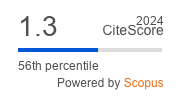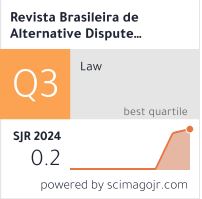Developing the Legal Regulation of Online Dispute Resolution
Schlagworte:
Online Dispute Resolution, Social Perspectives, Legal Domain, Written Form, Global Platform, Information SecurityAbstract
Online dispute resolution has the potential to challenge long-established stereotypes across various facets of society, including culture, politics, the economy, social perspectives, and existence. It’s evident that as our mutual understanding becomes increasingly intertwined with communication, the rapid and efficient resolution of issues in this realm is only a matter of time. In the 21st century, the Internet has revolutionized various aspects of life, serving as a ubiquitous source of information, a vital means of communication, and a global platform for commerce. It has acted as a catalyst for integrating modern technological solutions into established operations. Consequently, the legal domain is poised to exert a substantial influence on public life, especially in mediation and arbitration. In the future, the definition of “Written form” should be expanded to include “letters, e-mails, and telegrams,” and legal regulations should be simplified accordingly. The international implementation of this practice, including telegraphic forms, offers numerous advantages, facilitating the transmission of requests, petitions, and complaints over long distances while preserving their content. The need for electronic dispute resolution is underscored by the global expansion of digital buyers, which was expected to reach 2.05 billion in 2020. E-commerce companies have been instrumental in promoting the healthy growth of online commerce, including the establishment of efficient and prompt dispute resolution mechanisms to safeguard the rights of stakeholders and enforce obligations. This trend of choice is gaining prominence. The aftermath of the COVID-19 pandemic has expedited the transition to online dispute resolution in the legal sector. Whether implemented at the international or domestic level, there are universal principles that must be adhered to in digital mediation.
Literaturhinweise
Abernethy, s. Building large-scale online dispute resolution & trustmark systems. Unece forum on odr, p. 50-250, 2003
Allen, d.; Lane, a.; Poblet, m. The governance of blockchain dispute resolution, 2019. Retrieved from: file:///c:/users/clt/downloads/ssrn-id3334674.pdf. Accessed on: 24th feb. 2022.
Revista Brasileira de Alternative Dispute Resolution. Anirban Chakraborty, Shuvro Prosun Sarker. Resolving disputes with an healing effect: the practice of mediation in India. DOI: 10.52028/ rbadr.v4i8.4. p 62.
O. Turel & Y. Yuan, ‘Online Dispute Resolution Services: Justice, Concepts and Challenges’, in Handbook of Group Decision and Negotiation, pp. 425-429. 2010
E. Katsh & J. Rifkin, Online Dispute Resolution, Resolving Conflicts in Cyberspace, 1st edition, Wiley, San Francisco, p. 226. 2001
J.Thibaut & L. Walker, ‘Procedural Justice: A Psychological Analysis’, 1975, p. 12.
A. Pearlstein, B. Hanson & N. Ebner, ‘ODR in North America’, in M. S. Abdel Wahab, E. Katsh & D. Rainey (Eds.), Online Dispute Resolution: Theory and Practice: A Treatise on Technology and Dispute Resolution, Eleven International Publishing, The Netherlands, 2012, pp. 443-464.
Annual Report on China’s Internet Development, China Academy of Information and Technology Communications), White Paper, Vol. 20, No. 4, p. 1. 2018
C. S. Shang & W. Guo, ‘The Rise of Online Dispute Resolution-led Justice in China: An Initial Look’, Australian National University Journal of Law and Technology, Vol. 1, No. 2, pp. 25-42. 2020
Hieu, kim bui; samuel, P. E-Commerce in the Vietnam Legal System: Review legal framework to be improved to promote e-commerce. Journal of Legal, Ethical and Regulatory Issues, v. 24, n. 2, p. 9-19, 2021.MIOLO_RBADR_07.indd 22719/07/2022 15:36:23
Rules of Online Litigation of the People’s Court of China (Supreme People’s Court of China). 2021
L. Liu & B. R. Weingast, ‘Law Chinese Style: Solving the Authoritarian’s Legal Dilemma through the Private Provision of Law’. Working Paper, August 2020.
L. Liu & B. R. Weingast, ‘Taobao, Federalism, and the Emergence of Law, Chinese Style’, Minnesota Law Review, Vol. 102, No. 1563, 2018, p. 1583.
オンライン調停(ODR)の流れ、注意事項など. https://adr.tokyo-gyosei.or.jp/2022/11/30/
Court’, NCTDR (18 August 2017), http://odr.info/hangzhou-internet-court/, accessed 25 August 2021
Downloads
Veröffentlicht
Ausgabe
Rubrik
Lizenz

Dieses Werk steht unter der Lizenz Creative Commons Namensnennung 4.0 International.
No royalties or other compensation shall be due for the publication of the works.
The opinions expressed by the authors of the articles and reviews are their sole responsibility.









